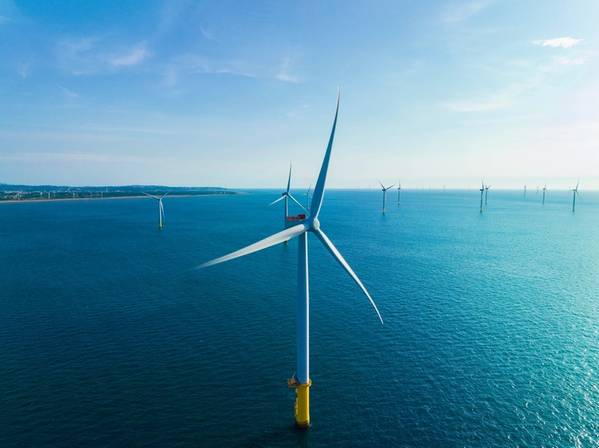
One of the dirtiest and most import-dependent power sectors in Asia is on a clean-up drive. Taiwan currently imports roughly 98% of its energy sources and gets more than 80% of its electricity from fossil fuels, including around 43% from coal and 39% from natural gas, according to data from think tank Ember.
Only around 16% of Taiwan's electricity sources are deemed clean, which is half the average for Asia as a whole and way less than regional rivals China, South Korea, Japan and India.
However, ambitious energy transition targets set by Taipei - including around $30 billion in related investments designed to help the country hit net-zero emissions by 2050 - have helped put Taiwan on a green energy fast track.
WIND POWERED GROWTH
Solar power was Taiwan's largest source of renewable energy generation in 2022, with 10.69 terawatt hours (TWh) of electricity produced, compared to 3.53 TWh from wind.
In comparison, fossil fuels generated 239 TWh of Taiwan's electricity last year, Ember data shows.
But the country's main focus in terms of future clean energy development is in the wind power space, and especially from offshore sites due to shortages of suitable space on land and strong offshore wind speeds.
The country has more than 66,000 megawatts of total wind power capacity under development, which is the fourth highest capacity volume in Asia and the ninth largest globally, according to data compiled by Global Energy Monitor (GEM).
In addition, the country has just over 1,000 megawatts of solar capacity in development, GEM data shows.
The build-out of new clean generation capacity should help the country reach its goal of having 20% of its electricity produced from clean sources before 2030, though geopolitical tensions with neighbour China across the Taiwan Strait are testing the mettle of wind power developers.
Taiwan is one of Asia's most active offshore wind development hubs, but concerns about potential worsening in relations between Taipei and Beijing have forced some development firms, including Japan's biggest power generator JERA, to sell project stakes.
REGIONAL REPERCUSSIONS
Despite jitters from some developers, overall progress on Taiwan's wind projects continues, and new investments in major offshore ventures were announced just this month by Japanese trading house Mitsui & Co.
The continued construction of Taiwan's renewable energy capacity has repercussions for both its domestic power sector and for global fossil fuel export markets.
At home, steady increases in locally produced clean energy will help power generators reduce use of fossil fuels, and in turn cut related emissions that average around 160 million tonnes of carbon dioxide and equivalent gases per year.
Of equal importance may be the impact on international fossil fuel trade flows, due to expected declines in Taiwan's demand for imports.
Taiwan imported more than 308 million barrels of crude oil in 2022, and close to 55 million tonnes of thermal coal, according to ship tracking data from Kpler.
Those import volumes will likely trend lower over the coming years as more renewable generation capacity comes on line, and as a greater proportion of Taiwan's economy becomes electrified.
The country's famed semiconductor industry, the world's largest, is aiding the national push for greater renewable energy generation, and has set itself a goal of being powered by 100% green energy supplies by 2040.
Taiwan's car sector is also being rapidly electrified, with sales of electric vehicles (EVs) more than doubling in 2022 and on course for further steep growth in 2023.
In tandem with the strong momentum behind Taiwan's green energy supply capacity, the rapid growth in demand for clean electricity from businesses and car users should help propel changes to Taiwan's electricity generation mix, and help the power sector quickly shed its dirty reputation.
(The opinions expressed here are those of the author, a columnist for Reuters.)
Taiwan has by far the lowest share of clean electricity in its electricity mix of major economies in Asia https://tmsnrt.rs/3PTKvd0
Taiwan's electricity generation mix from 2000 to 2022 https://tmsnrt.rs/3tgnFDw
(Reuters - Reporting By Gavin Maguire; Editing by Simon Cameron-Moore)